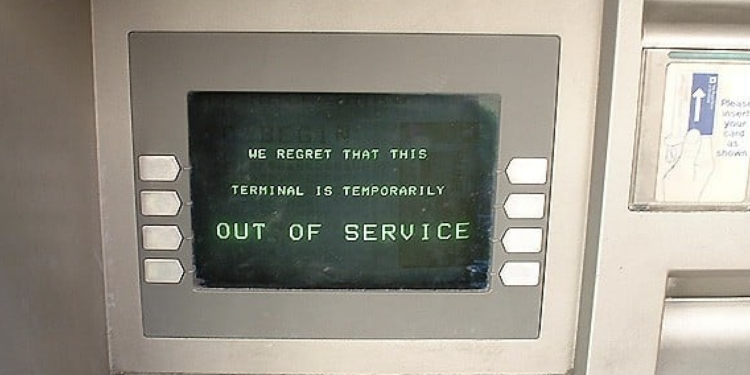I was waiting for it and I wasn’t disappointed – the Daily Sceptic article linking the CrowdStrike debacle to CBDCs. There are many arguments against CBDCs but “if it went offline all transactions would stop” isn’t one of them. Anyone making that argument does not understand how money works. It is wrong to say, as the DS article does, that: “A country reliant on a CBDC instead of cash would see an end to all transactions as a consequence of a similar failure affecting a component within whatever software stack was being used to operate CBDC infrastructure.” As an aside, you don’t hear this criticism levelled against Bitcoin. Perhaps Libertarians have access to computer architectures denied to Governments, or perhaps it’s just politics.
How do I justify my rebuttal of the usually excellent Dr. R P? We don’t know what the CBDC system architecture will be because it hasn’t been designed yet, but however it’s constituted it will only manage CBDC transactions. CBDCs are proposed as an alternative to physical cash, particularly for online transactions where notes and coins don’t work. According to the British Retail Consortium, physical cash accounts for about 11% of consumer spend, with an average transaction value around £25. And that’s just retail activity which is a subset of all transactions. The remaining 89% are cards, gift cards, bank transfers, asset transfers and so on. These are nothing to do with the Bank of England and therefore would go nowhere near any future CBDC system. That’s just retail transactions. High value transactions are handled by CHAPS. Funnily enough, CHAPS was down on July 18th. It handles £360 billion per day, which is 90% of sterling payments by value. That was bad, but still not “all transactions” and the economy didn’t stop. Indeed, most people didn’t even realise it had happened.
Dear reader, if you take nothing else away from this article, remember that just because it has a pound sign in-front of it does not mean it would be controlled by any future CBDC system. This is why there is little to fear from CBDCs. If you still oppose them if they ever come to fruition, just don’t use them, there are dozens of alternatives.
In some ways CBDCs would not be so different from all the other electronic money that we have all been using for decades and those systems do run into difficulties from time to time. But if Visa, Mastercard, NatWest or literally thousands of other parts of the global money system go offline, it is not as Dr. R P says “an end to all transactions”. This is partly because unlike airport check-in systems, financial transactions very often have alternative means of settlement. We know this because we have all experienced it: “Sorry that card isn’t working. Try another one.”
Don’t get me wrong. The CrowdStrike debacle is a catastrophe and an almost unbelievable single point of failure in otherwise disconnected corporate IT systems. Who knew that simultaneously injecting files into Windows’ kernels in millions of machines around the globe with no canary testing would one day go wrong? The folly of corporate IT knows no bounds. Indeed, one of the objections to CBDCs is that it would be a government system (if we stretch government to include the Bank of England) which in this context should be seen as a benefit. Yes, government has an appalling track record of IT system delivery, but that is not so much the case these days. If a CBDC system ever does gets built, it will be a government system classified as Critical National Infrastructure. That puts it in the same category as things such as the Electricity System Operator’s grid balancing mechanism and therefore subject to extraordinary levels of resilience planning. These are systems that you seldom hear of because they are extraordinarily reliable, and yes, expensive in a way that only governments can afford. The people running them do have a clue what they are doing, unlike your typical globalist CIO diversity hire who is in the seat for the kudos, the salary and the ability to manage suppliers and keep costs down. There is plenty to debate about CBDCs but let’s get over this idea that they will take down the economy.
Stop Press: Microsoft has blamed EU rules for preventing it from making security changes that would have protected its computers from CrowdStrike’s faulty security update. The Telegraph has more.











To join in with the discussion please make a donation to The Daily Sceptic.
Profanity and abuse will be removed and may lead to a permanent ban.